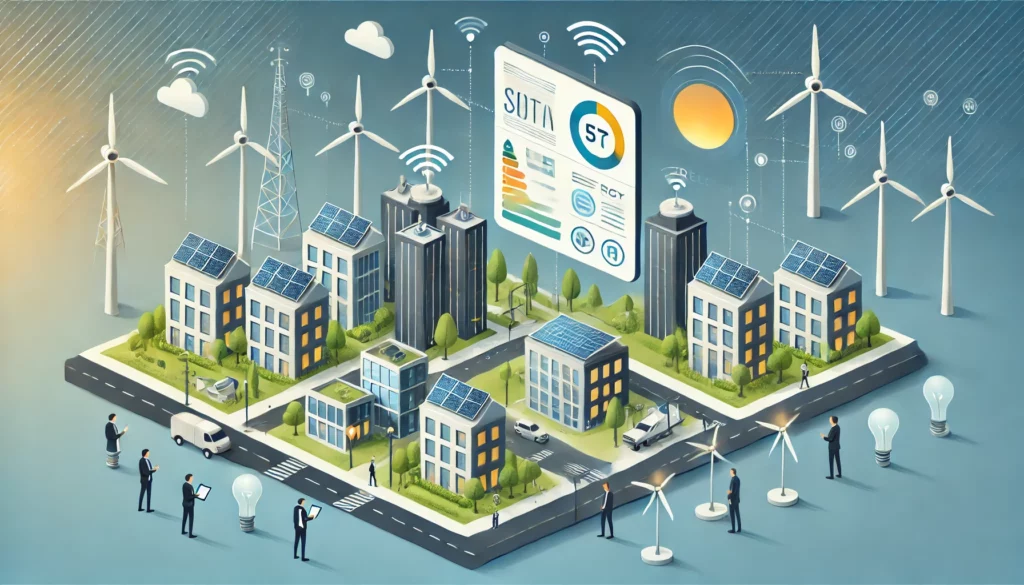Energy efficiency in buildings is of great importance, as buildings are responsible for a significant share of energy consumption and greenhouse gas emissions. Improving energy efficiency in buildings can help reduce energy consumption and associated costs, while also reducing CO2 emissions
There are many ways to improve energy efficiency in buildings. One way is to improve the building envelope, for example by using thermal insulation and energy-saving windows. Heating and air-conditioning systems can also be improved by using energy-efficient technologies such as heat pumps or solar collectors.
Another option is the use of renewable energies, such as solar energy or biomass. This can help reduce energy consumption while also reducing CO2 emissions.

There are also various incentive programs and financial support that can help improve energy efficiency in buildings. For example, many cities and municipalities offer subsidy programs for the use of renewable energies and energy-saving measures in buildings. The federal government also offers incentive programs and tax credits for improving energy efficiency in buildings.
Overall, there are many ways to improve energy efficiency in buildings. By using energy-saving technologies and renewable energy, both energy consumption and CO2 emissions can be reduced. In addition, there are also various incentive programs and financial assistance that can help improve energy efficiency in buildings.
Energy management is important and helpful to a business for several reasons.
First, energy management allows a company to accurately record and display energy flows. This can help a company uncover irregularities and energy hogs. In addition, a company can develop energy-saving measures based on the energy flows. All this leads to significant energy and cost reduction.
Secondly, energy reduction and efficient use of own energy has a positive impact on CO2 balance and sustainability. Understanding the energy sources used and targeting sustainable energy can reduce greenhouse gases and move the company towards carbon neutrality.
Third, energy management allows a company to achieve the requirements of various laws and audits. This also facilitates reporting on energy use and emissions. Furthermore, the company can set its own requirements, monitor them and thus demonstrate its commitment to sustainability. This is because more and more customers are showing great interest in climate-neutral and sustainable products and services. A company can thus build trust and reach new customer groups.
In summary, energy management has many important benefits. At EnExpert, we help your company implement efficient energy management and support you in achieving your energy goals.












